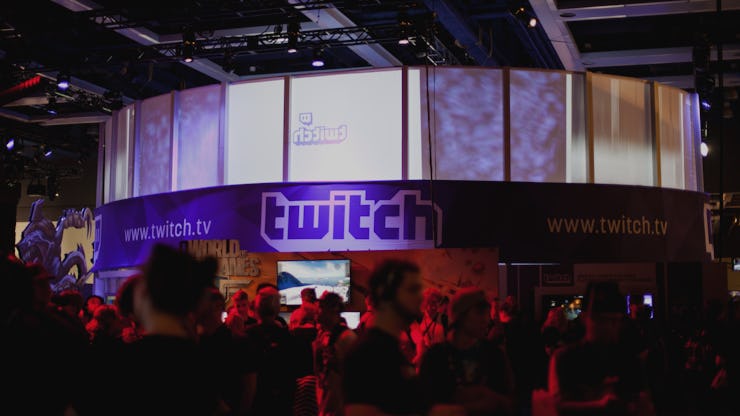How to Start Streaming Video Games
It's all about the preparation.

With the popularity of streaming video games reaching a fever pitch in 2016, you may just be considering getting your own personal broadcast off the ground to kick off the new year. Doing so is an extremely challenging but rewarding endeavor, with many hidden practices worth learning before you stream your first video game on, for example, Twitch. Here’s a few general tips worth knowing if you want to get a leg up on the competition.
Design a Channel Identity
No matter how you approach broadcasting on Twitch (and similar sites), take into consideration that you’re actively building a community centered on your personal channel every minute you’re live. The goal here is to grow your channel over time by welcoming more viewers into your community. But to do that, you need to establish an identity viewers can get behind, one which hooks new viewers while respecting those who have supported you since the beginning.
Even though many might tell you the opposite, it’s important to remember that there is no single tried-and-true formula for building a channel identity. Identity is different for every broadcaster. Sometimes these are based on personality, sometimes they are based on the core game that viewers can find on the channel, and sometimes they are simply based around the people who watch. Find something about your channel that speaks to viewers, and make it the very core of your channel identity as soon as you possibly can to establish a solid base for your community.
Establish a Set Schedule
In a way, Twitch and other streaming websites are just like your regularly scheduled television programming. There are a million different channels with differing themes, each hosted by a specific broadcaster. Every day these broadcasters go live and entertain for a few hours or more, and as an aspiring broadcaster yourself, you’ve got to have a set schedule so that your viewers know when they can expect you to be live during the week.
Without a set schedule, you’re essentially a surprise episode of cable television that viewers may come across occasionally but never end up regularly visiting. Never forget this, and most importantly: Don’t be late without a good reason if you intend on growing a successful channel.
Make Sure You Can Stream Without Compromise
Streaming video games directly to websites like Twitch or YouTube isn’t easy, namely because of the heavy load it puts on your hardware and the strict requirements to maintain a stable broadcast. One of the most important things you should check before you begin your journey into streaming is to make sure you’re capable of producing the broadcast you desire without compromise.
Usually, this means looking at the broadcast requirements listed online via streaming websites like Twitch and running a few test broadcasts to make sure that everything is working properly. You’ll have to test your Internet upload speed (should be at least over 2 MB/s), make sure your computer can stream a broadcast without overloading, set up a program like Open Broadcaster Software on your PC to create said broadcast, and much, much more. The important thing here is to take your time and cover every aspect of your broadcast. Don’t be in a rush to start, because a solid first few streams are worth the trouble.

Respect, Enjoy, and Interact With Your Viewers
No matter how many you have watching your broadcast at any given time, viewers are going to be the lifeblood of your personal channel and should always be at the top of your priority list whenever you’re live. Interaction between the broadcaster and those hanging out in chat is what makes streaming unique as a medium. If you neglect that aspect, you’re going to be in for a rough start.
People are going to be watching you for many different reasons depending on your broadcast. But whether it be skill, personality, or the game you’re streaming, they’re always going to be interested in sharing gaming experiences with you. As such, you must consistently be interacting with those hanging out on your broadcast no matter how focused on the game you are — otherwise you might find yourself alone no matter how many hours you end up streaming.